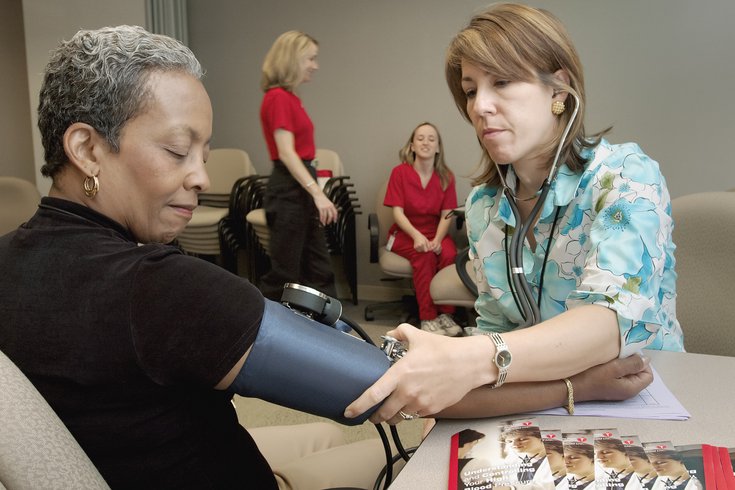
August 10, 2023
 CDC/Unsplash
CDC/Unsplash
A regional coalition of Philadelphia health systems is working together to remove race adjustments from 15 diagnostic tools, which help doctors assess risk for breast cancer, heart failure and osteoporosis.
A group of major Philadelphia health systems have vowed to no longer include race as a factor in certain tools used to make treatment decisions, because it may lead to incorrect diagnoses or incomplete care.
The regional coalition, which is led by Independence Blue Cross, includes Penn Medicine, Jefferson Health, Temple Health, the Children's Hospital of Philadelphia and eight other systems in the wider Philly area. The group will work together to remove race as a variable from 15 diagnostic calculators and scales, seeking alternatives that "do not reinforce a biological understanding of race," according to a press release. These tools include risk estimators for heart failure, cancer, bone fractures, kidney donation and anemia.
"They aren't raising the threshold of concern and providing additional resources to otherwise marginalized populations," Dr. Jaya Aysola, executive director for the Penn Medicine Center for Health Equity Advancement, said of the tools. "They're actually lowering it."
Those tools include spirometry, a pulmonary test that measures lung function. Results have been historically adjusted for Black and Asian patients under the assumption that they have a smaller lung capacity than their white peers. Subsequently, lung disease in those populations has been underdiagnosed.
Another example is the Vaginal Birth After Cesarean calculator, a risk assessment tool for expectant mothers who have previously had a C-section. As Aysola explains, the VBAC has a "race correction factor" for Black and Hispanic women that typically puts them in a greater risk category for vaginal delivery, meaning their doctors would recommend a C-section. But that actually opens them up to surgical complications and side effects. "There's always less risk with delivering vaginally than C-section, which is a true operation," Aysola said.
Penn Medicine has already revised their algorithm for the VBAC, removing the race consideration and adding a question about the patient's history of hypertension, which has increasingly become an area of concern for OB-GYNs.
"Rather than assuming and using race as a proxy for biological indicators, like having high blood pressure, why don't you just use those indicators?" she said.
Penn Medicine isn't the only member of the coalition to already phase out race adjustments on some diagnostic tools. CHOP has revised its UTI calculation guide, while Jefferson has updated its Estimated Glomerular Filtration Rate calculator, a measure of kidney function. Dwight McBee, executive vice president and chief experience officer for Jefferson Health, says 173 patients were newly eligible for transplants after the revisions. Since February, 10 of those patients have received transplants.
One patient, he says, was languishing on a waiting list and still years away from a transplant. After the race neutral eGFR recalculation, she received a credit of about 3.5 years and was transplanted three months ago.
"There's a lot of real lives impacted by these evaluations," he said.
The revision process will take time and input, not only from medical experts in the regional coalition but from the many national medical societies centered on gynecology, cardiology, oncology and other specialties. It will also take many complicated conversations about the role of race in medicine, which, experts caution, is still an important consideration.
"We don't want to create more inequity by eliminating the use of race," McBee said. "In some cases, the use of race actually is beneficial to historically marginalized groups, whereas in other tools, there's in fact a greater negative impact."
But in shifting away from old medical assumptions about race, the regional coalition is undoing decades, even centuries, of harmful beliefs about at-risk populations who, according to CHOP's chief health equity officer, already suffer poor health outcomes due to the stress of racism.
"I think the hopeful thing about this is that we are, as a society, realizing race is not a biological factor," Dr. Tyra Bryant-Stephens said. "It's a sociological factor and we're just adjusting our care to really incorporate that truth."
This story has been updated with quotes and information from Dr. Tyra Bryant-Stephens and CHOP.
Follow Kristin & PhillyVoice on Twitter: @kristin_hunt
| @thePhillyVoice
Like us on Facebook: PhillyVoice
Have a news tip? Let us know.